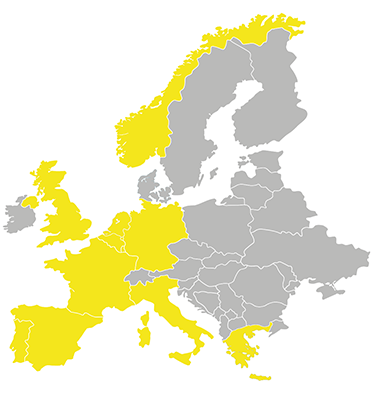The Road to Brexit
On 23 June 2016 the British people casted their vote in a historic EU referendum. The next day, a win for the leave-camp was declared. This started a series of (chaotic) negotiations, with the UK and the EU searching for a way to separate. There was no roadmap for the Brexit process, because never before had a country invoked Article 50 of the Lisbon Treaty. Even after 2 years of negotiations, many uncertainties remain. Will there be a hard Brexit, or will it be a soft Brexit? What are the odds for an exit with a ‘no deal’-scenario after March 2019? And will there be a Brexit ‘transition period’ from 29 March 2019 to 31 December 2020 (or even longer)?
Participating in EU-programmes and projects
Are you actively participating in the HORIZON 2020 programme, currently coordinating an EU funded project, or about to prepare a EU grant application? Or are you simply worried about the consequences for your project that is funded via Erasmus+, LIFE, Connecting European Facility (CEF) or another programme related to the EU’s Multiannual Financial Framework? Chances are you have questions on how Brexit could affect your funded or planned project. Such as:
- is my committed grant going to be affected?
- will the inclusion of British project participants in a new consortium affect my chances of success?
- could there be unexpected administrative problems in the future?
Situation until the end of 2020
Deal or no deal, that’s the big question. If the Draft Withdrawal Agreement will be signed (uncertain), funding for collaborative research EU projects with UK participants will be guaranteed in 2019 and 2020 (article 137). In some cases even longer, for projects that have started and are still running after 2020 (article 138). But of course, there is still a possibility that the Withdrawal Agreement will not be signed (‘no deal’ scenario). For UK organisations with funding from EU programmes, funding until the end of 2020 is guaranteed by the British government (see the ‘underwrite guarantee‘).
The situation after 2020
EU officials are not very talkative about British participants in EU projects after 2020. Their general message: the future relationships between the UK and the European Union will only be negotiated after the Brexit has taken place. PNO will monitor these developments closely (and will be updated as events unfold).
PNO can provide you with answers
Do you have unanswered questions regarding Brexit consequences for EU funded programmes, projects or consortia? Don’t hesitate to contact us!
PNO can:
- offer information on key Brexit consequences
- give details when major new developments occur
- monitor future EU evaluation results
- provide reports on the measurable Brexit effects in day to day funding practice
- allow you to ask Brexit of EU funding related questions and get them answered by domain experts.
Via the form below, we open up our knowledge and expertise in order to answer your questions. Just tell us your question!
Who are we?
PNO Consultants are Europe’s leading independent grants and innovation consultancy.
With our pool of over 250 professionals, including consultants, engineers, scientists, a Brussel policy advisory service, as well as financial and legal experts, PNO is being actively involved in 300 HORIZON 2020 proposals, and has submitted well over 1200 EU funding applications for its clients. Often, PNO participates in these projects as well.
Please contact us.

